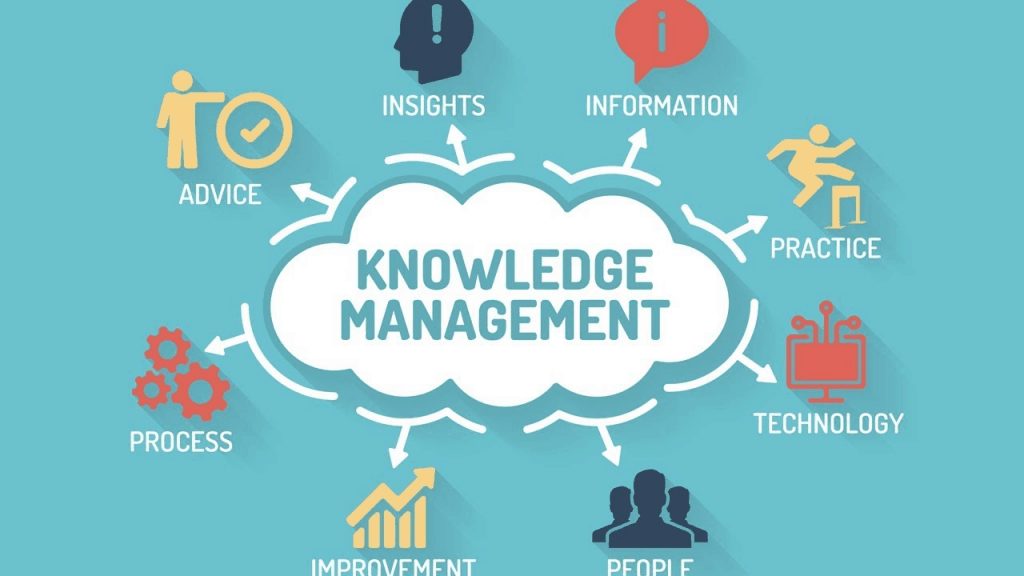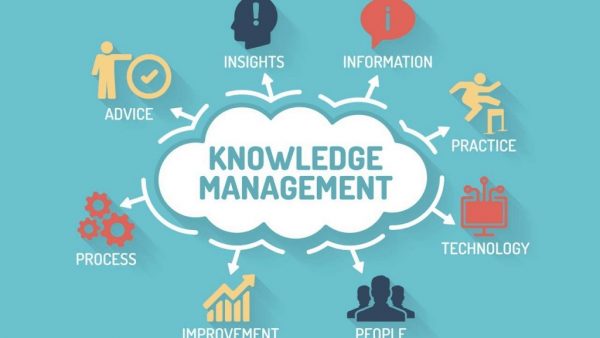Knowledge, they say, is power. Every business depends on the flow and application of specialised knowledge. Small businesses, especially, face major challenges to survive and excel in the highly competitive environment in which they currently operate. Therefore, Knowledge management (KM) and successful implementation of knowledge management systems (KMS) are of key interest to many organisations, both large and small-medium size (SMEs).
Read more about Business
Defining knowledge management could be really tasking because knowledge management is a highly interdisciplinary field that attracts scholars and practitioners from various fields such as philosophy, information science, library science, among others. One of the common and adopted versions is that of Tom Davenport from 1994 which states, “Knowledge Management is the process of capturing, distributing, and effectively using knowledge.” Knowledge management is aimed at improving an organisation’s efficiency, a cycle of discovering, capturing, storing, sharing, using, and saving knowledge within the organisation.
Knowledge can be broadly classified into two as Tacit and Explicit Knowledge. Another classification has it in five dimensions as embodied, embedded, embrained, encultured, and encoded.
Explicit knowledge is the knowledge that you can see. It is formal, easy to document, transfer, and reproduce e.g online tutorials, policy & procedure manuals, encyclopedias and textbooks, how to change the toner in a printer and mathematical equations etc. It is basically knowledge that can be articulated, codified and stored in certain media and contributes to efficiency as it deals with process knowledge and process improvement.
Tacit knowledge on the other hand is personal and context specified knowledge. It is the knowledge that resides in our heads (that is behind the eyes, between the ears). While it is experiential and hard to document and communicate, this is the knowledge that most people are interested in. It is difficult to get to unless people share. It is developed through the interaction with other people and grows through the practice of trial and error, experiences of success & failures enhanced by the repetitive nature of doing your job where you just develop a ‘know-how’. This type of knowledge leads to competency as it deals with problem-solving and decision making within the organisation and therefore you need to think about how to get the experts within your organisation to share their knowledge for the benefit of all.
Knowledge management will ensure that the specialised knowledge of employees does not leave with them, or go unutilised by other employees. This is important because it boosts the efficiency of an organisation’s decision-making ability.
The importance of knowledge management is growing every year. As the marketplace becomes ever more competitive, one of the best ways to stay ahead of the curve is to build your organisation in an intelligent and flexible manner. You want to be able to spot issues from a distance and respond quickly to new information and innovations.
In order to manage knowledge efficiently and sustainably, you would need tools and systems. These systems and tools are known as knowledge management systems and knowledge management tools (IT-based and non-IT-based).
Sign up to the Connect Nigeria daily newsletter
So why is knowledge management important to small businesses?
When you have a small workforce, every single one of them is important, because a smaller workforce means that when one leaves, the absence is felt tenfold. It is important to have a solid knowledge management strategy in place to keep your business running. It can help your enterprise increase your revenue, foster a learning culture, widen your customer base, and promote employee engagement. All in all, having a good knowledge management system in place is a good investment strategy.
The purpose of having these systems is to ensure that the employee all have access to the same information across the organisation. These knowledge management systems are a good means of housing different types of information under different categories. It also makes searching for and retrieving information easier. Ensuring that the information in the system is accurate and up to date is also easy when you use a good knowledge management system.
Various Knowledge transfer mechanisms (KTMs) can be used to facilitate knowledge retention, including IT- and non-IT- or HR-based Mechanisms. HR-based KTMs are used for more personal knowledge, for instance, cross-training or rotation programs. From a product vs. process perspective, IT-based KTMs can serve two purposes, either facilitating the codification of knowledge or the transfer of knowledge among individuals.
From a product perspective, IT systems facilitate KR as storage and the transfer of knowledge from the individual to the collective level, for instance with repositories of key technical knowledge. From a process or personalisation perspective, IT systems facilitate KR through communication tools. For instance, social software such as social tagging and wikis may allow for knowledge sharing among knowledge owners and knowledge seekers, and for easy conversion of an individual to social knowledge.
Nonetheless, it is possible that the use of KTMs at the wrong level (i.e. at a collective or social level vs. individual level), notably IT-based ones, may lead to decreased knowledge sharing and potential knowledge loss. Consequently, it is pertinent to understand the types of KTMs that facilitate knowledge retention and mitigate knowledge loss. Research revealed that the lack of available social KTMs for the conversion of individuals to social objectified knowledge leads to knowledge loss. Unintentional knowledge loss can occur when individual knowledge is not converted to social knowledge. In general, IT has been viewed as a knowledge retention enabler within organisations.
What To Do: Go For It!
Remember to pay attention to managing your organisation’s knowledge efficiently and sustainably, leverage on tools and systems. Check resources online or discuss with an expert consultant.
Featured Image Source: Knowledge Powered Solutions
Got a suggestion? Contact us: [email protected]


